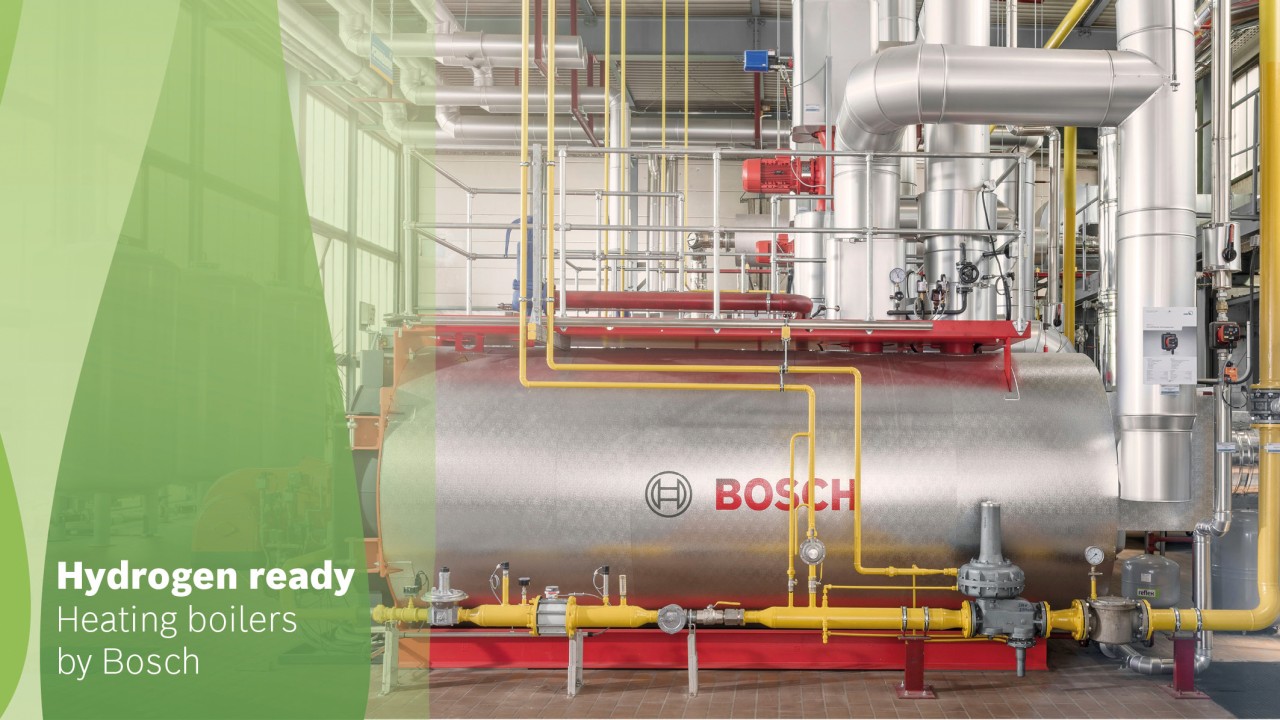Kawasaki Breaks Ground on World’s First Centrifugal Hydrogen Compressor for Liquefaction Plants
Kawasaki Heavy Industries, Ltd. has begun construction of a groundbreaking demonstration facility for the KM

Hydrogen-ready boilers are designed to run on hydrogen gas, which is considered a clean and sustainable alternative to natural gas. Hydrogen is a versatile fuel that can be produced from renewable sources, such as wind and solar power, and has the potential to significantly reduce carbon emissions in the heating sector.
There are different types of hydrogen-ready boilers available on the market, including boilers that can be converted from natural gas to hydrogen, partially converted boilers that can operate on a mixture of natural gas and hydrogen, and 100% hydrogen-ready boilers that can operate exclusively on hydrogen gas.
One of the main advantages of hydrogen-ready boilers is that they can help to decarbonize the heating sector, which is responsible for a significant portion of global greenhouse gas emissions. By using hydrogen instead of natural gas, these boilers can help to reduce carbon emissions and contribute to a more sustainable future.
However, there are also some challenges associated with hydrogen-ready boilers, including their cost and availability, as well as the technical challenges involved in converting existing natural gas infrastructure to accommodate hydrogen.
One potential option for converting LNG boilers to hydrogen is to replace the burner and combustion chamber with hydrogen-compatible components. This can be a costly and complex process, as it may require modifications to the existing infrastructure, such as pipelines and storage tanks, to ensure compatibility with hydrogen gas.
Another option for hydrogen conversion is to use a partial conversion approach, where a mixture of natural gas and hydrogen is used as a fuel source. This approach can help to minimize the cost and technical challenges associated with full conversion to hydrogen, while still providing some of the environmental benefits of hydrogen fuel.
In terms of efficiency, hydrogen-ready boilers can have similar or even better efficiency ratings compared to natural gas boilers, as hydrogen gas has a higher calorific value than natural gas. However, the exact efficiency ratings can vary depending on the specific design and technology used in each boiler.
Hydrogen-ready boilers are currently available in the industry, and several leading manufacturers have developed models that are compatible with hydrogen gas. These include companies such as Baxi, Worcester Bosch, and Viessmann, among others.

However, the availability and adoption of hydrogen-ready boilers are still limited, as the hydrogen infrastructure is not yet fully developed in many regions. Additionally, the cost of hydrogen-ready boilers can be higher than traditional natural gas boilers, which may present a barrier to adoption for some consumers and businesses.
Hydrogen-ready boilers have the potential to play a significant role in supporting the net zero initiative by reducing greenhouse gas emissions in the heating sector. The heating sector accounts for a significant portion of global emissions, with natural gas being the most commonly used fuel for heating in many regions.
By replacing natural gas with hydrogen, hydrogen-ready boilers can significantly reduce the carbon footprint of heating systems. Hydrogen is a clean and sustainable alternative to natural gas, as it produces no carbon emissions when burned, only water and heat. This means that by switching to hydrogen-ready boilers, households and businesses can significantly reduce their carbon footprint.
Furthermore, the production of hydrogen can be powered by renewable energy sources such as wind and solar power, which can further reduce emissions. This is known as "green hydrogen," which is produced by using renewable electricity to split water molecules into hydrogen and oxygen through a process called electrolysis.
Hydrogen-ready boilers also have the potential to support the net-zero initiative by enabling the transition to a hydrogen-based economy. As the demand for hydrogen increases, the infrastructure required to produce, store and transport hydrogen will also need to be developed. This will create new job opportunities in the renewable energy sector, and support the growth of a low-carbon economy.
Overall, the deployment of hydrogen-ready boilers can significantly reduce emissions in the heating sector, support the transition to a hydrogen-based economy, and create new opportunities for sustainable economic growth. As such, hydrogen-ready boilers represent an important step towards achieving the net-zero initiative and a more sustainable future.
In conclusion, hydrogen-ready boilers represent an important step towards decarbonizing the heating sector and reducing global greenhouse gas emissions. While there are challenges associated with their adoption, including cost and technical challenges, the development and deployment of these boilers could have a significant impact on creating a more sustainable future.